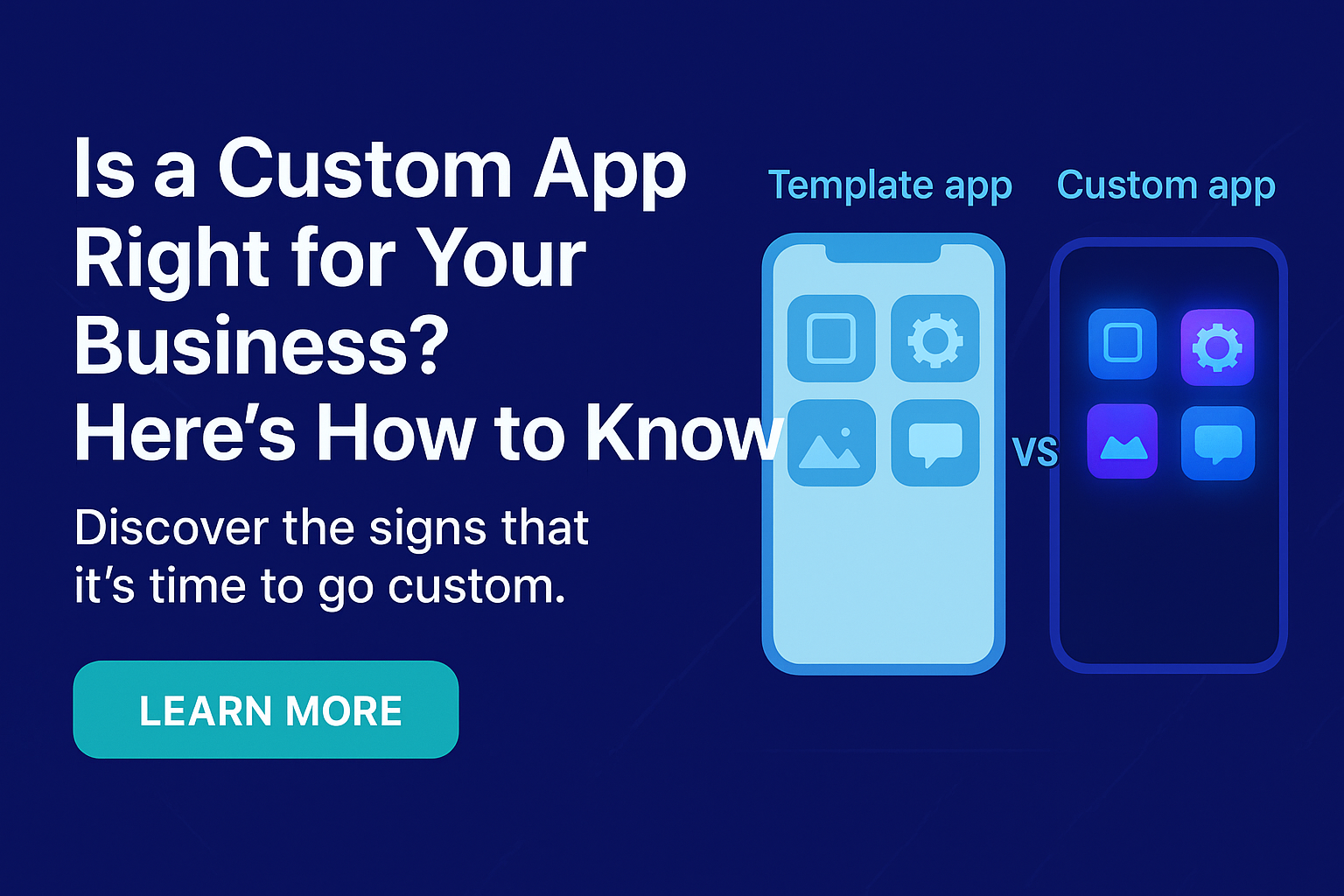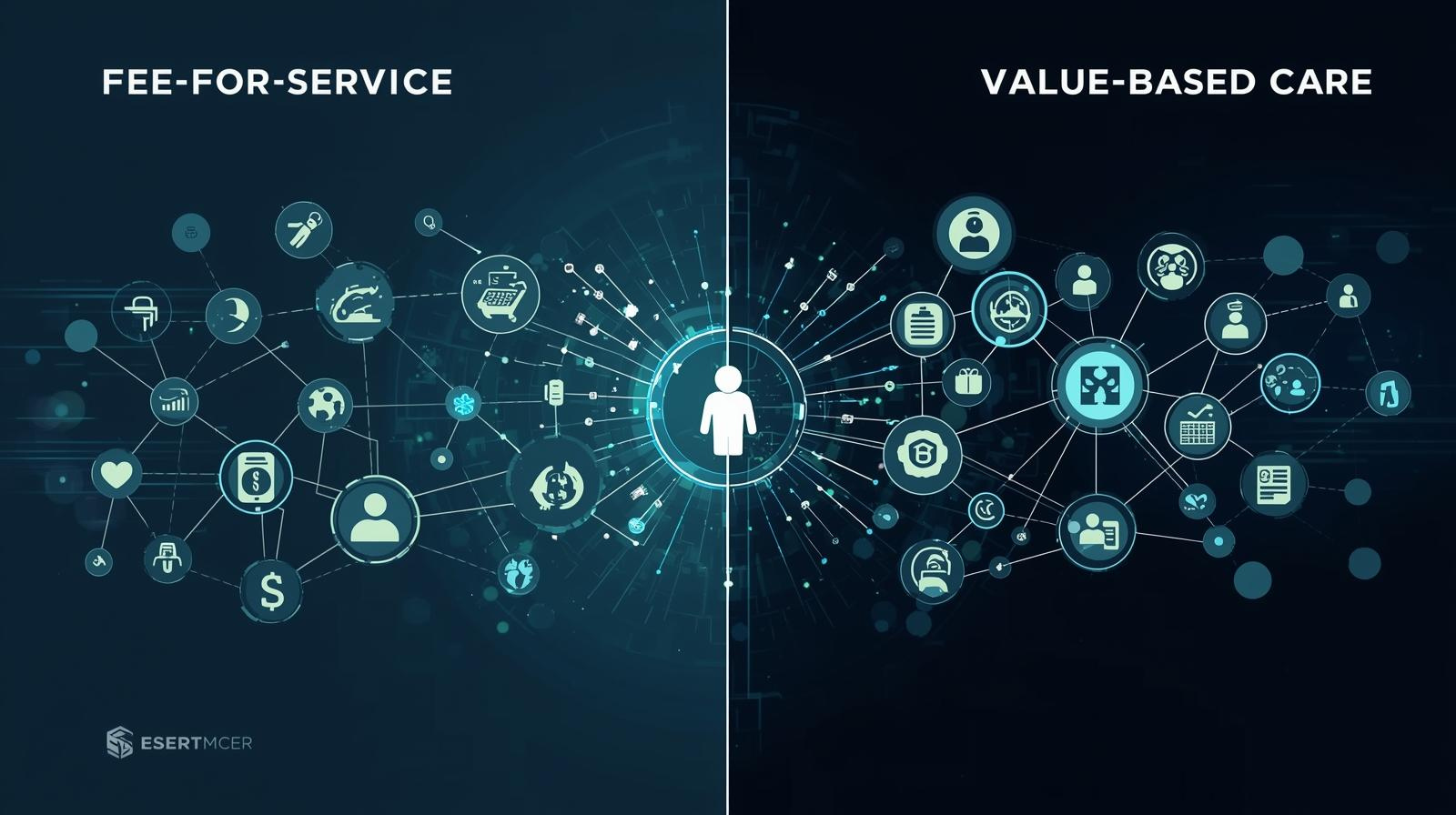Is a Custom App Right for Your Business? Here’s How to Know
In today’s fast‑moving digital world, businesses of all sizes are looking for ways to connect better with customers, streamline operations, and stand out from the competition. One powerful way many companies are achieving this is by using mobile or web apps — those handy tools on your phone or computer that help you get things done quickly.
But here’s the big question: Should your business invest in a custom app or explore custom app development services? Or are off-the-shelf, ready-made apps enough? Building a custom app sounds exciting, but it’s also a big decision that requires time, money, and commitment. The choice you make could shape how your business runs today—and adapts for tomorrow.
In this blog, we’ll walk you through the key things to consider so you can decide if a custom app is the right move for your business — no confusing tech talk, just practical insights.
What is a Custom App?
Before we dive in, let’s quickly clear up what a custom app means. A custom app is a software application built specifically for your business to meet your unique needs. It’s designed from the ground up based on what you want it to do, rather than buying a generic app that serves many types of users.
Think of it like tailored clothing versus off-the-rack. Tailored clothing fits your body perfectly, while off-the-rack might be “good enough” but not quite right. A custom app is tailored for your business.
Why Consider a Custom App?
Businesses consider custom apps because:
- They want something that fits their exact workflow or customer experience.
- They need features that off-the-shelf apps don’t offer.
- They want to build stronger customer engagement.
- They’re looking to improve efficiency internally.
- They want to stand out and offer something unique.
Sounds great, but how do you know if it’s the right choice for your business?
1. Identify Your Business Needs and Goals
The first step is to get crystal clear on what your business really needs.
- Are you trying to solve a specific problem that current apps don’t address?
- Do you need to simplify a complex process that employees or customers find confusing?
- Do you want to reach customers in a way no one else in your industry does?
For example, a restaurant might want a custom app for ordering and loyalty rewards that fits their exact menu and promotions — something off-the-shelf apps might not support well.
If your needs are simple and general, an existing app might be enough. But if your business requires something unique, custom development could be the answer.
2. Think About Your Customers
Your customers are your business’s heartbeat. How can a custom app make their experience better?
- Would a personalized app make it easier for them to shop, book, or engage with your services?
- Does your business rely on quick, direct communication with customers?
- Are your customers tech-savvy and likely to embrace using an app?
If your customers would find a custom app valuable and easier than current options, it’s worth considering.
For example, a fitness studio might create a custom app for class schedules, booking, and personalized workout plans — making it simpler for members to stay connected.
3. Evaluate Your Budget and Timeline
Custom apps require investment — not just money, but time too.
- Do you have the budget to build, test, launch, and maintain a custom app?
- Can you afford the time it takes to plan, develop, and improve the app?
- Are you prepared for ongoing costs like updates and fixes?
Custom apps are generally more expensive than off-the-shelf options initially, but they can deliver greater value over time if done right.
If your budget or timeline is tight, starting with existing apps or simpler solutions might be better — or you can develop your custom app in stages.
4. Consider the Competition
Look around your industry and see what others are doing.
- Do your competitors have apps?
- Are their apps helping them win more customers or operate more efficiently?
- Could a custom app give you an advantage that sets you apart?
Sometimes, having a custom app is less about keeping up and more about getting ahead.
For example, a real estate agency with a custom app for property tours, listings, and client communication could stand out from agencies relying only on websites or generic platforms.
5. Check Your Internal Readiness
Having an app is not just about technology; it’s about your people and processes too.
- Is your team ready to use the app and incorporate it into daily work?
- Do you have someone to manage or oversee the app once it’s live?
- Are you open to adapting your business processes to leverage the app effectively?
Without internal buy-in and support, even the best custom app can fail to deliver results.
6. Understand the Benefits of Customization
What makes custom apps special is that they are built to your specifications — which means:
- Tailored features and user experience
- Scalability as your business grows
- Integration with your existing tools and systems
- Ownership of your data and app functionality
These benefits are powerful if your business requires flexibility and uniqueness.
7. Think Long-Term
A custom app is not just a one-time project. It’s a long-term investment.
- How will the app grow with your business?
- Will you update it as customer needs evolve?
- How will you handle technology changes or new trends?
Planning for the future ensures your app stays relevant and continues to add value.
When a Custom App Might NOT Be the Best Fit
Sometimes, a custom app is not the right choice. Here are a few scenarios:
- You need a quick solution without much investment.
- Your business needs are simple and met well by existing apps.
- You don’t have the team or resources to support an app long-term.
- You’re unsure about your app’s purpose or goals.
In these cases, exploring existing tools or simpler software may be better.
Steps to Take if You Decide to Build a Custom App
If you’ve decided a custom app could help your business, here’s what to do next:
1. Define Your Goals and Requirements Clearly
Write down exactly what you want the app to do and how it should help your business.
2. Find the Right Development Partner
Look for experienced app developers who understand your industry and can guide you through the process.
3. Plan Your Budget and Timeline
Agree on a clear budget and realistic timeline for design, development, testing, and launch.
4. Test and Gather Feedback
Before launching, test the app with real users to fix issues and make improvements.
5. Train Your Team and Customers
Make sure everyone knows how to use the app and understands its benefits.
6. Monitor and Improve
After launch, keep track of how the app performs and be ready to update and enhance it.
Final Thoughts
Deciding whether a custom app is right for your business depends on many factors: your unique needs, customers, budget, competition, and long-term goals. While custom apps can be a game-changer, they require careful thought and commitment.
If your business faces challenges that off-the-shelf solutions can’t solve, or if you want to create a unique experience for your customers or team, partnering with an on demand app development company might be exactly what you need.
At the end of the day, the best app is the one that helps your business grow, improves efficiency, and makes your customers happier — whether it’s custom-built or not.












